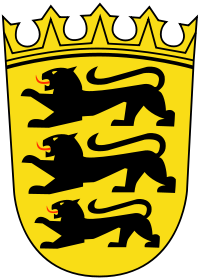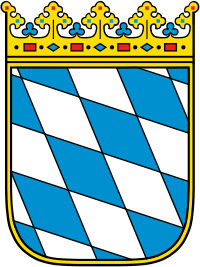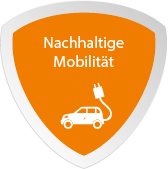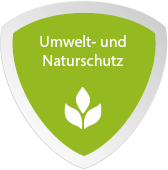Die nachfolgenden Inhalte stammen aus dem Kooperationsprogramm "Interreg Danube Transnational Programme" (Version 1.1).
Kurzbeschreibung
Developing and improving environmentally-friendly and low-carbon transport systems, including inland waterways and maritime transport in order to promote sustainable regional and local mobility.
Förderziel
Promotion of sustainable multimodal transportation.
Fördergegenstände
Information, Kommunikation, Beteiligung, Management, Verwaltung, Strategieentwicklung, Konzept-, Teilkonzepterstellung, Vernetzung, Kooperation, Wissenstransfer
Zuwendungsempfänger
Beneficiaries are according to their legal form:
Local, regional and national public authorities/institutions, bodies governed by public law, EGTC, international organisations and private bodies.
Beneficiaries comprise according to their thematic scope among others:
Local, regional and national public authorities and organisations established and managed by public authorities responsible for transport and economic development, infrastructure and (public) service providers (e.g. for public transport), Public and private logistics and public transport operators, interest groups including NGOs (e.g. international organisation, environmental organisations, voluntary association, etc.), business support organisation (e.g. chamber of commerce, business innovations centres), research and development institutions, universities with research facilities, higher education, education/training centre and school.
Förderfähige Gebietskulisse
Die förderfähige Gebietskulisse in Deutschland umfasst: Baden-Württemberg und Bayern.
Kooperationsmöglichkeiten bestehen mit folgenden Staaten: Österreich, Bosnien und Herzegowina, Bulgarien, Tschechische Republik, Ungarn, Kroatien, Moldawien, Rumänien, Montenegro, Serbien, Slowenien und die Slowakei.
Achtung: Bitte prüfen Sie im Kooperationsprogramm (KP, CP) welche Teilräume der Staaten förderfähig sind.
Art der Unterstützung
Non-repayable grant
Beschreibung
Actions are assigned to Programme-Part "Environment and culture responsible Danube region".
The following types of action may be financed:
Development of common orientations, frameworks and strategies, development and practical implementation of transnational tools and services, preparation of transnational investments, pilot activities including small-scale investments, development and practical implementation of training and capacity building, accompanying information, dissemination and publicity measures.
List of indicative actions:
- Contribute to the development of integrated transport frameworks and other joint coordination measures for the Danube region. Improving coordination and transnational integration among transport stakeholders for better governance and management of environment-friendly transport corridors. Establishing platforms which help to gather financing, planning and operating further emission reducing and energy efficient freight and passenger transport. Contribute through policy integration to building a comprehensive, mutually inter-connected transport system, i.e. connect the lower-level transport routes to the TEN-T system.
- Contribute to better integrated policies and practical solutions to further develop waterways by exchanging and transferring know-how and good practice in the scope of waterway infrastructure, waterway maintenance and management, fleet modernisation or port (infrastructure) development.
- Contribute to more effective information sharing, dialogue and integrated approaches to limit impacts of transport systems on the Danube ecosystem, taking into account the environmental legislation and promoting inter-sectoral cooperation, establishing more effective cooperation between waterway administrations and Protected Area administrations.
- Improve coordination and transnational integration among transport stakeholders to further develop multimodal hubs, terminals and links. Contribute to the development of efficient multimodal terminals at Danube river ports and dry ports to connect inland waterways with rail and road transport. Exchange knowledge in port (hub) infrastructure development, identify of new markets and cargo flow, encourage modal shift from road to waterway (Danube), support the cooperation of multimodal terminals alongside the Danube. Improve efficiency of cross-border movements of cargo on the external EU-borders by tackling administrative and fiscal barriers. Harmonise technical, safety, legal, organisational and other aspects of transport modes and networks.
- Water transport must respect the Water Framework Directive and the Danube River Basin Management Plan (DRBMP).
- Contribute to a safer transport network by improving frameworks, developing concrete environmentally-friendly and sustainable transport solutions and providing the training, technology and reporting tools to build and sustain national, regional and local capabilities and share experience and knowledge of effective road safety programmes in the region.
- Contribute to a better organisation of public transport links and other sustainable modes of transport in functional urban and rural areas. Exchanging and transferring know-how and good practice for better organisation of public transport links in functional areas (e.g. by transport associations), mobility management, on demand public transport, promoting cycle and pedestrian traffic, e-mobility, road safety including pilot investments. Support the preparation of investments in mobility centres and bus terminals. Highlight the topic of accessibility regarding rural areas.
- Encourage joint planning and development of urban, interurban and cross-border bicycle routes in the Danube region. Support multimodal bicycle tourism making the most of the growing trend in bicycle tourism - especially along rivers - and also due to the boom of e-bike. The Danube offers the unique possibility of combining bicycling with travelling by boat. Projects may cover cross-border multimodality including rail and including addressing organisational and legal barriers.
- Contribute to ensure accessibility of rural areas, especially those affected by demographic change.
Zielgruppe
The main target groups are public and private actors who benefit from transnational achievements such as policy integration, knowledge transfer and capacity building, concrete solutions in the fields of sustainable and better interconnected transport.
Auswahlverfahren
Information on the assessment process and selection criteria can be found in the application manual which will be available in an application package with each call for proposals. The assessment process comprises of an eligibility check, an quality check and an assessment of the strategic and operational relevance.
Projektauswahlkriterien
Selection criteria can be found in the Cooperation Programme on pp. 125-126. The full list of criteria can be found in the fifth part of the application manual.
Laufzeit
Start der Maßnahme: 01.01.2014
Ende der Maßnahme: 31.12.2023




